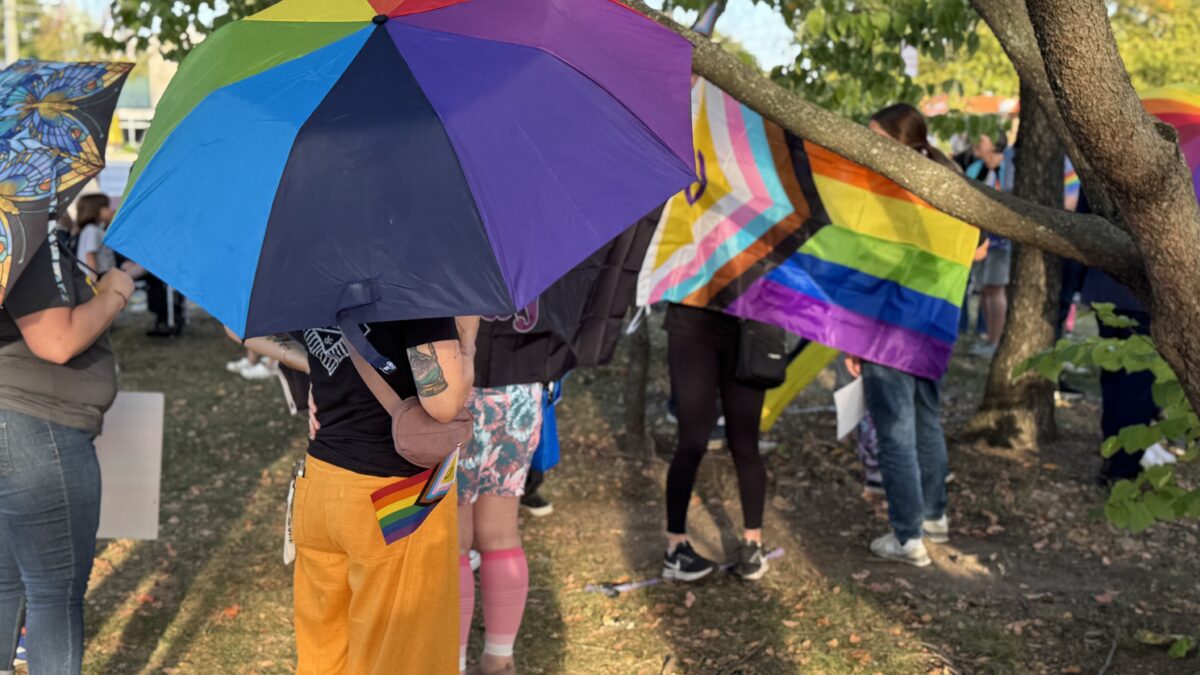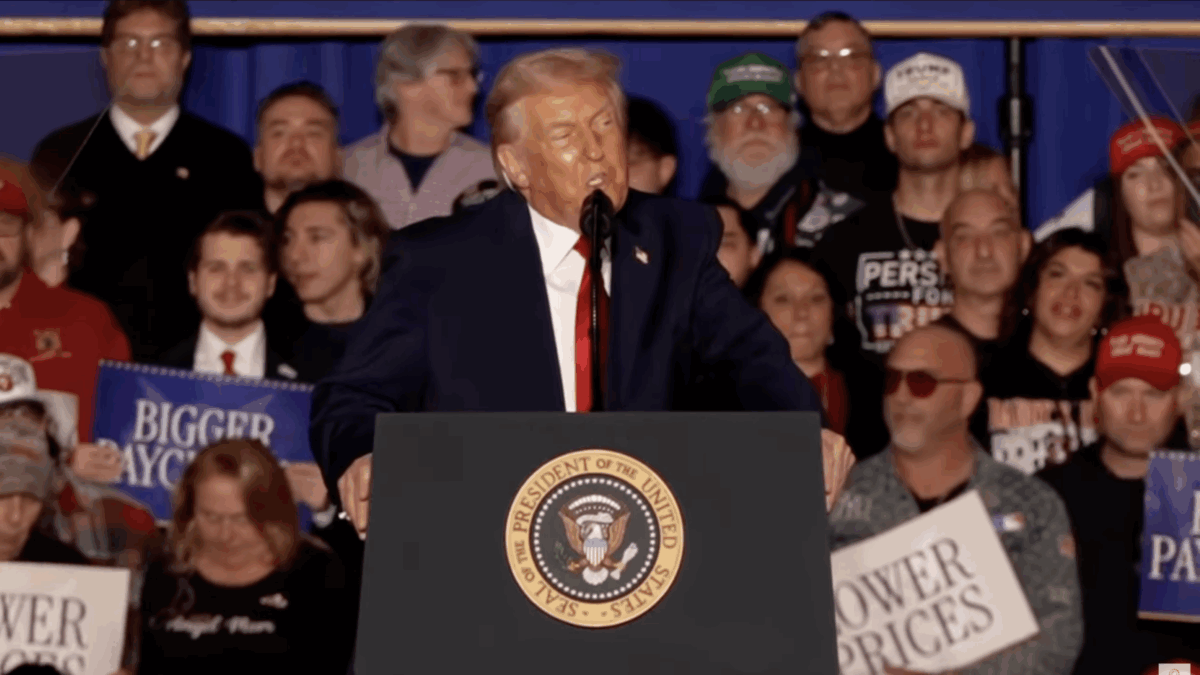
As mask mandates and habits return across the United States, clear and convincing scientific data from before and after 2020 suggest masking has negative health consequences that outweighs its utility.
Earlier this year, a group of German doctors and biomedical scientists looked at the available data on the negative health effects of face masks, published both before and during the COVID-19 outbreak, as catalogued in the U.S. federal government’s biomedical database, PubMed. They found significant evidence of “relevant, undesired medical, organ and organ system-related phenomena accompanied by wearing masks,” with “clear, scientifically recorded adverse effects for the mask wearer.”
I Can’t Breathe
Covering the airways with masks makes breathing harder, due to the air resistance they generate and the moisture they collect inside. According to one 2020 study: “Ventilation, cardiopulmonary exercise capacity and comfort are reduced by surgical masks and highly impaired by FFP2/N95 face masks in healthy individuals.”
Masks also create “dead space” air between the mask surface and the face, which remains trapped at the end of every breath out, and gets rebreathed right back in. Dead-space air is stale, potentially containing 20 times the CO2 concentration of normal room air, along with hundreds of other substances excreted by the human body through the lungs, including toxins.
Mixed with those are traces of the chemicals, such as formaldehyde, used to make or preserve the masks. Plastic microfibers slough off the fabric, have recently been found lodged in the sinuses of patients diagnosed with irritant rhinitis, and may make it all the way into the lungs.
Because of the increased resistance to breathing and trapped dead-space air, masks make it harder for the lungs to remove CO2 from the blood, and to supply the blood with oxygen. Multiple experimental studies with N95, surgical, and other masks, some published in prestigious journals like Nature, provide evidence that all common kinds of face masks can result in statistically higher blood CO2 levels or lower blood oxygen levels in healthy individuals, or both.
The body reacts to this imbalance by increasing its resting pulse and breathing rates, which can be dangerous to those in poor health. Data reviewed by Taiwanese scientists show the “elderly or patients with reduced cardiopulmonary function have a higher risk of developing a severe respiratory failure while wearing a mask.”
Slowing Thinking and Concentration
Now, healthy adults are able to safely raise their pulse and breathing for short periods to levels much higher than the increases seen with masks. Indeed, temporary pulse, breathing, and blood CO2 increases are healthy and beneficial effects of physical exercise.
The argument that masks are therefore safe for healthy adults, however, ignores health problems associated with long-term, chronic mask use. According to data reviewed by the German scientists, “[e]ven slightly but persistently increased heart rates encourage oxidative stress” and arteriosclerosis.
Even “slightly increased breathing rates over long periods,” the German scientists note, may cause “high blood pressure, cardiac dysfunction and damage to blood vessels supplying the brain.” Over extended periods of time, “small increases in carbon dioxide in the inhaled air” have been linked with asthma, high blood pressure, and neurological problems.
Other harmful effects of mask wearing show up much quicker. In 2020, Chinese scientists reported experimental results with human test subjects using multiple common mask types, including surgical masks and N95s. They found significant impaired thinking or concentration after only 100 minutes of mask use, correlating significantly with reduced blood oxygen levels in the test subjects.
A 2020 article in the Journal of Infectious Diseases and Epidemiology reported that 24 percent of 343 surveyed medical staff, who wore a mix of surgical and N95 masks while working their shifts, began to experience impaired cognition from one to four hours after starting their shifts. Readers of all professions who have been forced to mask up at work during the pandemic might sympathize with the article’s conclusion: “Wearing masks for a prolonged amount of time causes a host of physiologic and psychologic burdens and can decrease work efficiency.”
A Whole-Body Stress Response
In addition to impaired thinking and performance, increased blood CO2 levels can also cause psychotropic effects. High levels of CO2 poison mammals. The brain stem reacts to increased CO2 in the blood by letting the body know that it needs fresh air, activating a whole-body stress response.
Indeed, mindfulness practices often help lower stress and anxiety through the use of deeper breathing techniques, which slow breathing rates and help lower blood CO2 levels. On the other extreme, psychiatrists use CO2 inhalation to clinically trigger panic attacks in consenting patients when testing for certain psychiatric disorders. Torture squads take advantage of the same CO2-triggered panic effect during waterboarding.
Do governments, employers, and schools have the legal authority to subject Americans to the same stressor at work in waterboarding? Mask mandates are making an especially strong comeback in the nation’s primary and secondary schools. What are the long term effects of masking on the bodies and brains of children, which are particularly oxygen-hungry as they grow and learn?
Yearning to Breathe Free
This article does not contain legal advice. For that, readers are encouraged to hire their own lawyers or contact this one privately. At the same time, it is a matter of fact that mask mandates rely on the threat of government force to, quite literally, limit the public’s freedom to breathe. In principle, as the sine qua non of all aerobic life, respiration is the fundamental freedom. Various fundamental constitutional rights may therefore be implicated in mandatory masking.
The fundamental right to bodily integrity in Anglo-Saxon law predates the Constitution, and has long been applied as protection from medical quackery. According to the Supreme Court, the doctrine of informed consent to medical treatment is based on the idea that “[e]very human being of adult years and sound mind has a right to determine what shall be done with his own body,” including the right “to refuse treatment.”
The doctrine of informed consent is “firmly entrenched in American tort law,” on both federal and state levels. In Massachusetts, where this author practices law, doctors owe patients a legal duty to disclose any “significant medical information” that would be “material to an intelligent decision by the patient” whether the patient should agree to any “diagnostic, therapeutic or invasive procedures, medical interventions or treatments.” Doctors are required to know and disclose any relevant medical information that would be known to any other “average qualified physician” in their field of practice.
Violations of Informed Consent
The Food and Drug Administration defines and regulates face masks as medical devices when used for protection against COVID-19. A year and a half into the pandemic, significant medical information that face masks may pose serious health and safety risks is now available.
Certainly, medical information promoting the safety and utility of wearing face masks is also available (mostly limited to studies on wear times of an hour or less), but doctors must provide patients with all significant medical information. Instead, information about the negative health effects of face masking is mostly limited to medical literature. The public remains uninformed, its consent overruled by mandates.
Given the known health risks of masking, the courts should apply the doctrine of informed consent to mask mandate challenges. Other ways to fight against masking in court, like product liability lawsuits against mask manufacturers, should also be considered by enterprising libertarian lawyers. May a thousand class actions bloom, and may we all get the right to breathe free.









